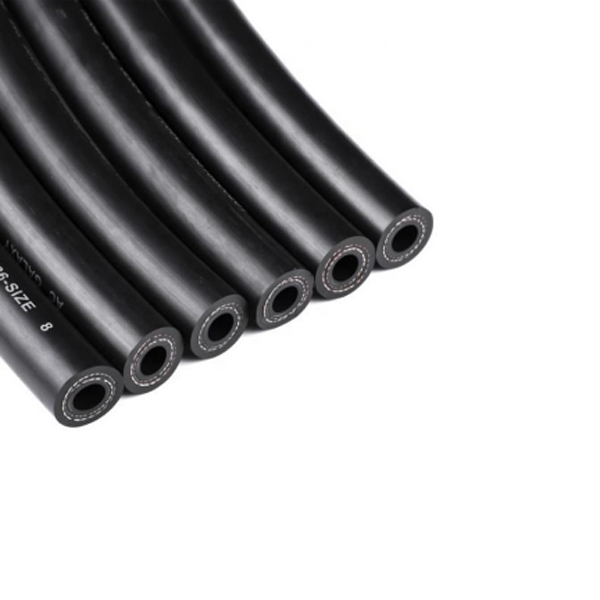Exploring the Benefits and Applications of Flexible Fuel Hose Solutions in Automotive Systems
des . 13, 2024 10:53 Back to list
Exploring the Benefits and Applications of Flexible Fuel Hose Solutions in Automotive Systems
Understanding Flexible Fuel Hose The Future of Fuel Delivery Systems
In the realm of automotive engineering and fuel delivery systems, the concept of flexible fuel hoses plays a pivotal role. These hoses are designed to transport fuel safely and efficiently from various components of a vehicle, such as the fuel tank to the engine. They are essential for maintaining optimal performance and safety standards in modern vehicles.
What is a Flexible Fuel Hose?
A flexible fuel hose is a specialized type of hose constructed from materials that can withstand the harsh conditions associated with fuel storage and transport. These hoses are typically made from rubber or polymer materials that are resistant to gasoline, ethanol blends, and biodiesel. Their flexibility allows for easy installation in tight spaces and enables the hose to absorb vibrations and movements of the vehicle, reducing the risk of damage over time.
Importance of Flexibility
The flexibility of fuel hoses is crucial for several reasons. Firstly, it allows for straightforward routing through the vehicle’s chassis without the need for rigid piping systems that can be cumbersome and complex. Additionally, flexible hoses can accommodate the thermal expansion and contraction caused by fluctuating engine temperatures, ensuring that the fuel delivery system remains intact and functional under varying conditions.
Moreover, the elasticity of these hoses can prevent leaks and maintain the integrity of the fuel system. In situations where traditional rigid pipes may crack or break due to stress, flexible fuel hoses can absorb pressure changes, thereby enhancing the durability and reliability of the fuel delivery system.
Safety and Compliance
flexible fuel hose

One of the critical aspects of flexible fuel hoses is their adherence to safety standards and regulations. With stringent guidelines set forth by organizations such as the Society of Automotive Engineers (SAE) and various global regulatory bodies, these hoses are subjected to rigorous testing to ensure they can withstand extreme pressures, temperatures, and exposure to various chemicals found in fuels.
Incorporating fail-safes into the design and construction of flexible fuel hoses is also integral. Many modern hoses come equipped with features such as burst-resistant technology and fire-retardant materials, enhancing their safety profile. Regular maintenance and inspections are essential to prevent wear and degradation, ensuring that any potential issues are addressed before they become hazardous.
Applications Beyond Automotive
While flexible fuel hoses are most commonly associated with automotive applications, their utility extends far beyond vehicles. These hoses are also found in aviation, marine, industrial, and agricultural applications where fuel transfer is necessary. In aviation, for example, flexible fuel hoses play a critical role in delivering fuel to aircraft under various environmental conditions, similar to their function in automotive contexts.
In industrial settings, they are used to transfer not just fuel, but various liquids required in manufacturing processes. Their ability to handle high pressures and resist chemical degradation makes them invaluable in environments ranging from chemical plants to agricultural machinery.
Innovations and Future Trends
As technology progresses, the materials and designs of flexible fuel hoses continue to evolve. Innovations such as advancements in synthetic rubber compounds are leading to hoses that offer improved durability, resistance to heat and chemical exposure, and lower weights. Future trends may also include the integration of smart technologies, allowing for real-time monitoring of hose performance and fuel quality, further enhancing safety and efficiency.
In conclusion, the flexible fuel hose is an essential component of modern fuel delivery systems, providing a combination of safety, performance, and versatility. As vehicles and machinery become more sophisticated and fuel technologies evolve, the role of flexible fuel hoses will undoubtedly expand, continuing to be a critical element in the operation of engines and fuel systems across various industries. Understanding their importance not only helps in maintaining vehicle performance but also contributes to broader discussions on safety and innovation in fuel technology.
